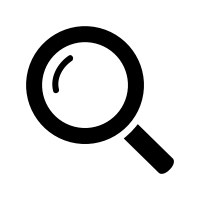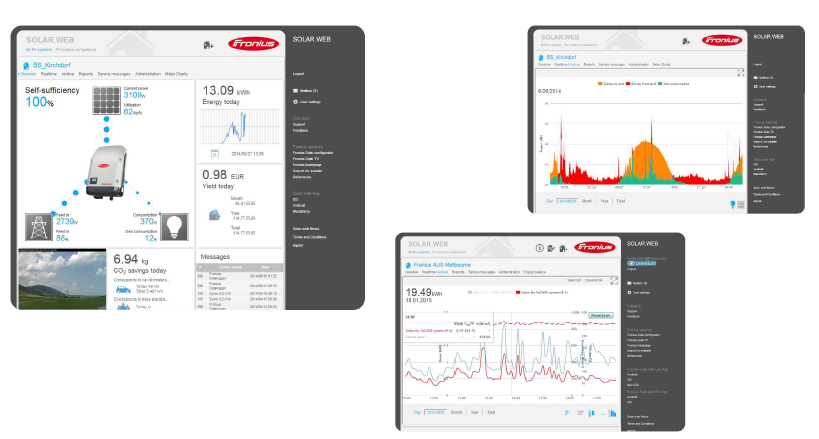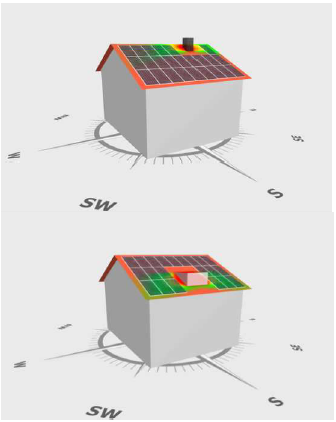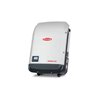
Triphasé Fronius ECO Triphasé inser
More info
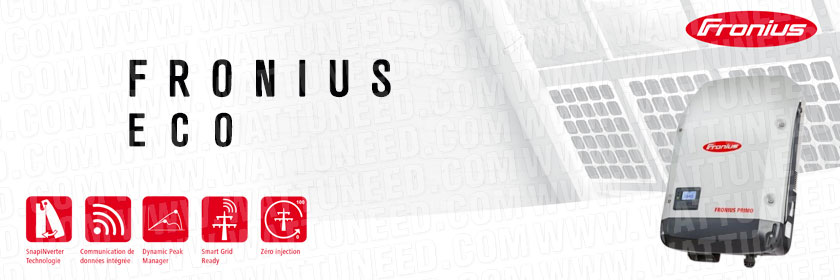
The fronius Eco triphased in the 25.0 and 27.0 kW power classes optimally meets the requirements of large installations. Thanks to its low weight and SnapINverter mounting system, this transformer-free device can be installed easily and quickly indoors and outdoors. The series of inverters sets new security milestones for its IP 66 protection class. In addition, chain-collecting boxes are no longer needed with all-pole built-in chain fuse holders and optional DC fuses.
Technology

SNAPINVERTER TECHNOLOGY
The SnapINverter generation is distinguished by its simple and seamless assembly system. Installation and maintenance are easier than ever. The particularity of the aircraft structure is the separation between the connection area and the power floor area. These two zones are mounted separately. The exceptionally light connecting area is first mounted to the wall with all the wiring. It is then the turn of the power floor. The innovative pivoting concept makes assembly and maintenance particularly user-friendly. The inunnator is simply suspended in the wall holder and then secured. In case of a problem, it is therefore not necessary to disassemble the entire inleer, but only the power floor. The complete wiring is retained.

INTEGRATED DATA COMMUNICATION
As the leading manufacturer of inverters, we offer a data communication package with all the following functions: Datalogging, WLAN, Ethernet, energy management, web server and many interfaces. The inunr is connected to the Internet via a network cable or WLAN - without additional wiring - and you get an optimal overview of how the photovoltaic installation works. Connection to components from third-party suppliers is provided by interfaces such as Modbus TCP SunSpec, Modbus RTU SunSpec or Fronius Solar API (JSON). In addition, open interfaces can be used in conjunction with Fronius Solar.web
 SMART GRID READY
SMART GRID READY
Fronius inverters are ready for tomorrow's Smart Grid. The inverters are best adesigned to meet the future requirements of network operations. Devices have a multitude of smart features called Advanced Grid Features. These are various regulatory functions for optimal injection of reactive power and effective power. The aim of these functions is to enable the secure operation of the network, even with a very high concentration of photovoltaic installations, in order to prevent cross-border network parameters from causing unannounced interruptions. injection and, as a result, yield losses. The Fronius inverters therefore ensure optimal efficiency of the photovoltaic installation. In addition, with Fronius inverters, it is possible to regulate the injection dynamically taking into account self-consumption in case of injection limits. Just connect the meter and adjust the injection limit!
 DYNAMIC PEAK MANAGER
DYNAMIC PEAK MANAGER
The Dynamic Peak Manager is a brand new MPP sun tracking algorithm that, when searching for the optimal work point, dynamically adapts its behavior. The peculiarity is that the Dynamic Peak Manager regularly and automatically checks the complete feature and thus finds the overall Maximum Power Point (GMPP) in the case of partial shading.
 ZERO INJECTION
ZERO INJECTION
Today, more and more energy suppliers in many countries are calling for a limit on the injection of photovoltaic power as a precondition for network coupling. With dynamic power reduction, Fronius offers a solution for optimal injection management. The inunr primarily provides electricity to household consumers. Then, it reduces the power of the current injection to the maximum value expected by the energy supplier. Fronius inverters allow zero injection thanks to this function. Thus, there is no photovoltaic energy injected into the power grid and the corresponding requirements of the energy supplier can be met without problem set up by a simple installation on the web interface of the inundor.
Simple, fast and efficient editing
Manage your production with SolarWeb
Management of shading with DynamicPeakManager
Chimney shade: 1-2% additional gain per year for 1 hour of shading in the morning and evening
Sleeping shade: 2-4% additional gain per year for 1 hour of shading in the morning and evening
Energy consumption of the "DynamicPeakManager": 0.05% of the annual gain
Installing the monitoring system with WiFi
General commissioning of Fronius inverters
SnapINverter Technology
Technical features
| FRONIUS ENECENS | ECO 25.0-3-S | ECO 27.0-3-S |
| Max Entry Current (Idc max) | 44.2 A | 47.7 A |
| Maximum short-circuit current of the module field | 71.6 A | |
| Min. Entry Tension (Udc min) | 580 V | |
| Injection start-up tension (Udc start) | 650 V | |
| Nominal input tension (Udc,r) | 580 V | |
| Maximum input tension (Udc max) | 1,000 V | |
| Tension range MPP (Umpp min - Umpp max) | 580 - 850 V | |
| Number of MPP trackers | 1 | |
| Number of DC connectors | 6 | |
| Power max PV generator (Pdc max) | 37.8 kWc | |
| OUTPUT DATA | FRONIUS ECO 25.0-3-S | FRONIUS ECO 27.0-3-S |
| AC rated output power (Pac,r) | 25,000 W | 27,000 W |
| Maximum output power. | 25,000 VA | 27,000 VA |
| AC Release Current (Iac Name) | 37.9 A / 36.2 A | 40.9 A / 39.1 A |
| Network coupling (voltage range) | 3-NPE 380 V / 220 V or 3-NPE 400 V / 230 V (up 20% / - 30%) | |
| Frequency (frequency range) | 50 Hz / 60 Hz (45 - 65 Hz) | |
| Harmonic distortion rate | 2.0 per cent | |
| Power factor (cos 'ac,r) | 0 - 1 ind. / cap. | |
| GENERAL DATA | FRONIUS ECO 25.0-3-S | FRONIUS ECO 27.0-3-S |
| Dimensions (height x width x depth) | 725 x 510 x 225 mm | |
| Weight | 35.7 kg | |
| Protection index | IP 66 | |
| Protective class | 1 | |
| Surge category (DC / AC) 1) | 1 - 2/3 | |
| Night consumption | 1 W | |
| Indutor concept | No transformer | |
| Cooling | Cooling by regulated air | |
| Editing | inside and outside | |
| Room temperature range | -25 C / 60 C | |
| Humidity of the air allowed | 0 - 100 % | |
| Maximum altitude. | 2,000m | |
| DC connection technology | Screw stations 2.5 - 16 mm2 6x DC and 6x D | |
| AC connection technology | Screw stations 2.5 - 16 mm2 5 poles | |
| Certificates and compliance with standards | E 8001-4-712, DIN V VDE 0126-1-1/A1, VDE AR N 4105, CEI 62109-1/-2, CEI 62116, CEI 61727, AS 3100, AS 4777-2, AS 4777-3, CER 06-190, G83/2, G59/3, A 206007-1, SI 4777, CEI 0-16, CER 06-190, G83/2, G59/3, A 206007-1, SI 4777, CEI0 0-16, CEI 0-190, G83/2, G59/3, A 206007-1, SI 4777, CEI 0-16, CEI 0-1 | |
Specifications
| Triphasé |


